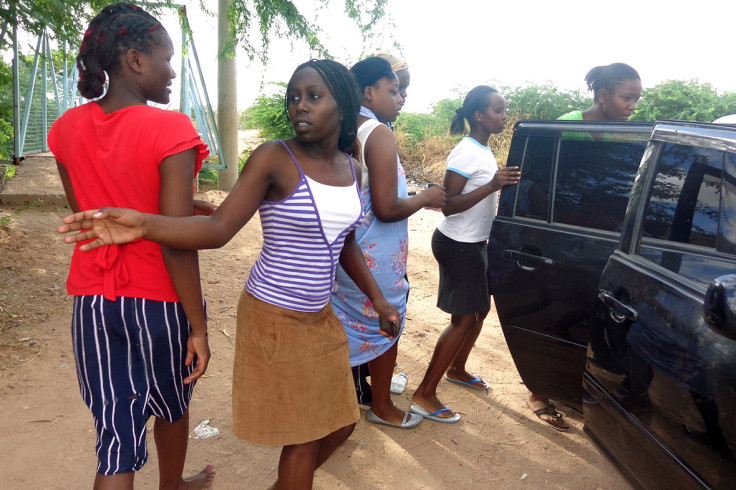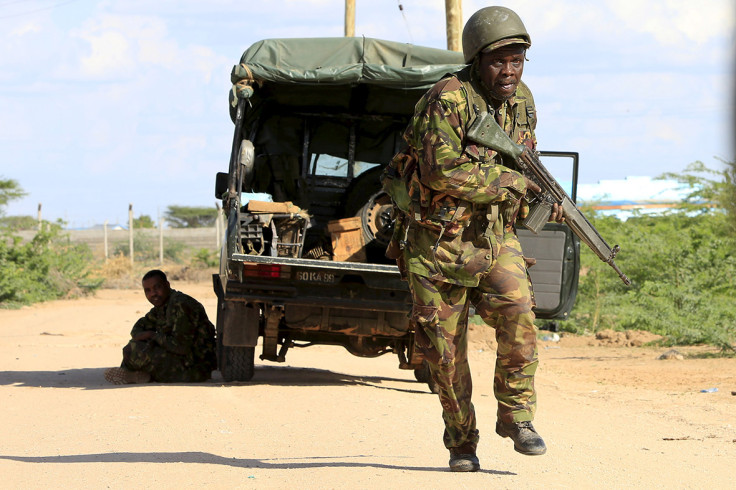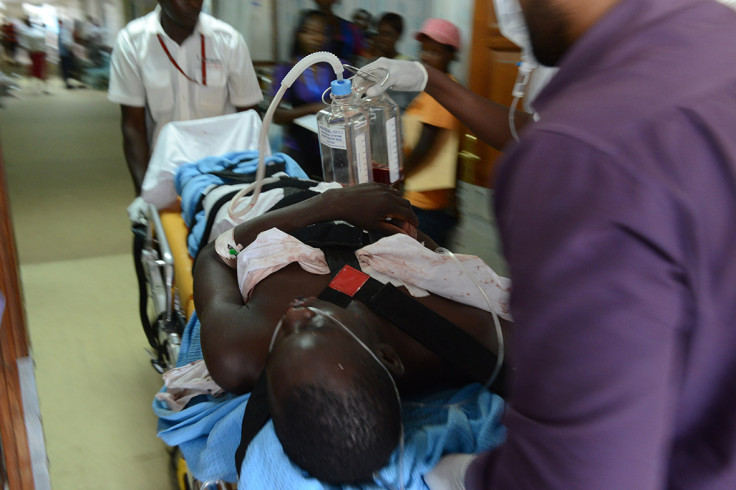Kenya: 150 feared dead as University siege ends

150 people are feared dead as the siege of a university in eastern Kenya comes to an end.
10 masked gunmen stormed the Garissa University College at around 5am local time (0700 BST) on 2 April, as students were preparing for dawn prayers.
It is believed to be the worst terrorist attack on Kenyan soil since the bombing of the US Embassy in Nairobi in 1998 which killed more than 200 people.
Al Shabaab militants forced their way into the university following a stand-off with guards manning the main gate.
Two police officers are among the dead and four of the attackers have also been killed. One was arrested as he tried to flee.
We've killed so many people, you'll be shocked when you go inside.
At least 79 others have been confirmed as wounded in the siege. While 500 of 815 students have been accounted for, the militants captured many hostages during the siege, most of them girls, Kenya's interior minister has confirmed.
The Kenya National Disaster Operation Centre said on its Twitter feed: "The operation at Garissa University College has ended, with all four terrorists killed." Another tweet said: "147 fatalities confirmed in the Garissa Attack. Plans are underway to evacuate students and other affected persons."
The Somali Islamist militant group with links to al-Qaeda, claimed responsibility for the pre-dawn attack, justifying their actions midst claims that the university "is on Muslim land colonized by non-Muslims".
Sheikh Abdiasis Abu Musab, military operations spokesman for the militant group, said: "We sorted people out and released the Muslims. There are many dead bodies of Christians inside the building. We are also holding many Christians alive.
"We've killed so many people, you'll be shocked when you go inside," the militant group warned.
Students attending morning prayers at the university's mosque at 5.30am were not attacked.
The gunfight between security services and the perpetrators lasted several hours.

Describing the chaotic scenes inside the university as the militants stormed the building, Collins Wetangula, the vice chairman of the student union, said he heard gunshots coming from a dormitory.
"All I could hear were footsteps and gunshots; nobody was screaming because they thought this would lead the gunmen to know where they are," he said. "The gunmen were saying sisi ni al-Shabab (Swahili for we are al-Shabab). If you were a Christian you were shot on the spot. With each blast of the gun I thought I was going to die."
Just last week, the Chief Security Officer at the University of Nairobi feared an attack was imminent and issued a security warning, but it is unclear whether the same information was relayed to Garissa officials.
Grace Kai, a student at a neighbouring college, said there had been fears of an imminent attack.
"Some strangers had been spotted in Garissa town and were suspected to be terrorists," she said. "Then on Monday our college principal told us... that strangers had been spotted in our college. On Tuesday we were released to go home, and our college closed, but the campus remained in session, and now they have been attacked."
The authorities have offered a $215,000 (£145,000) bounty for a a senior member of the Somali terror organisation called Mohamed Mohamud, known as Dulyadin, alias Gamadhere, who is suspected by Kenyan intelligence officials of masterminding the attack.
Mohamud claimed responsibility for an earlier attack in Makka, Kenya, on November 22, 2014, when 28 people were murdered.

The terrorists stuck mid-way through Holy Week, the most solemn period in the Christian calendar. Tonight, the Christian students were planning to celebrate the Last Supper in preparation tomorrow for Good Friday.
Al Shabaab was responsible for the deadly attack in 2013 on the Westgate shopping mall. Which left 67 people dead when a group of gunmen rampaged through the centre in Nairobi.
Following the raid Kenya's President Uhuru Kenyatta said: "I extend condolences to the families of those who have perished in this attack. We continue to pray for the quick recovery of the injured, and the safe rescue of those held hostage."
Kenyan police chief Joseph Boinet announced that the area around the university has now been sealed off and a dusk to dawn curfew has been introduced from 6.30pm to 6.30am for four regions near the Somalia border as a security precaution. 10,000 police recruits would be fast-tracked following the attack.
The militants, who have links to al Qaeda, have vowed to take retribution against Kenya for sending its troops to Somalia.
© Copyright IBTimes 2024. All rights reserved.









